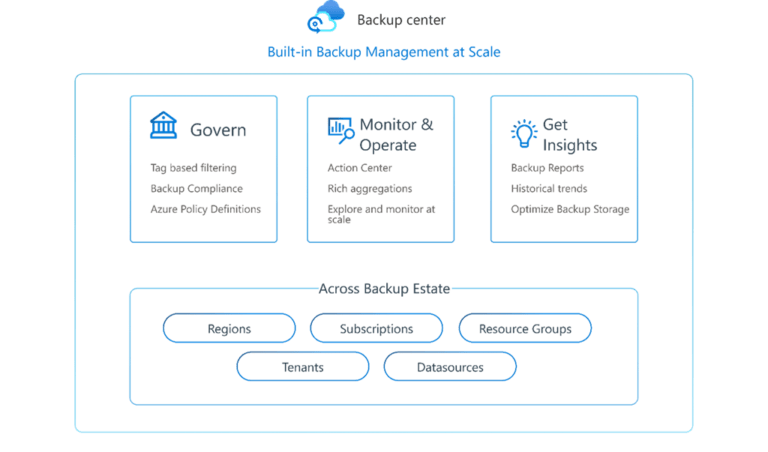
.pp-multiple-authors-boxes-wrapper {display:none;} img {width:100%;}
Cloud remains a long-term investment priority for 60% of major corporations in the UK and Ireland, despite current macro headwinds and the recent slowing of growth of global cloud providers.
This is according to Tata Consultancy Services’ latest survey of senior business leaders worldwide, ‘Connected Future: How Cloud Drives Business Innovation’.
The global survey of 972 senior executives included 102 respondents from across the UK and Ireland. It reveals that innovation is a major driver of cloud investment, with 63% of UK and Irish executives reporting that cloud is crucial as a catalyst for innovation for their organisation’s future. This figure is slightly higher than the global average of 59%.
This appears particularly true for artificial intelligence (AI): 74% of UK and Irish respondents invested in AI and machine learning capabilities over the past two years, while 78% plan to do so over the coming 12 – 24 months. Both technologies are highly dependent on access to large amounts of data and scalability through cloud.
Over half of respondents from the UK and Ireland (56%) ranked ‘new ways of working to improve employee engagement and productivity (e.g., remote collaboration technology)’ as their most desired outcome for cloud-enabled innovation. Progress is underway, with 32% already realising their desired innovation outcomes in this area.
In addition, the study also finds a clear majority of respondents (75%) in the UK and Ireland are using cloud technologies to achieve their sustainability goals, this is higher than the global average of 67%. However, 48% reported difficulty in understanding the carbon footprints of cloud providers. This suggests that while most respondents see cloud as an important – and thus far successful – part of their sustainability strategy and increasingly use cloud tools to assess their own carbon impact, they are now demanding the same visibility from their cloud providers.
Overall, despite significant progress in recent years, the study reveals that businesses still have a long way to go to unlock the full power and potential of cloud. Other key findings for UK and Ireland include:
- Industry clouds or ‘vertical clouds’ are rapidly emerging as a fast path to acquiring greater business expertise and capabilities, with an overwhelming majority of executives (79%) already assessing, adopting, or using them in business today. This is higher than the global average of 73%, indicating the UK and Ireland are ahead in leveraging the cloud for industry-specific applications.
- 84% respondents want to participate in digital ecosystems, but most are still far from realising their full value: 43% are still in the earliest stages of transition towards mature digital ecosystems.
- Critical skills shortages continue to affect businesses in the cloud space, around half (up to 55%) of respondents report a lack of full cloud proficiencies in-house.
Venu Gudimetla, head of Cloud Business UK&I, TCS, said: “Despite the challenging economic climate, a majority of businesses in the UK and Ireland are prioritising long-term investment in the cloud to power innovations such as AI and drive new business models. Interestingly, the UK and Ireland are already making progress when it comes to industry-specific cloud deployments and achieving their sustainability goals. We expect to see an acceleration of innovation, as more businesses start to leverage cloud technologies for long-term growth and profitability.”
Krishnan Ramanujam, president, Enterprise Growth Group, TCS, said: “A desire for greater efficiency, resilience, and flexibility drove early cloud adoption, and these remain critical factors. Businesses now more fully understand how cloud drives business growth and innovation for the long-term, and for most, the journey is only just getting started.
“Cloud is a frequent source of short-term ROI anxieties, but growth and transformation is a long game. Reconciling these two realities is a challenge and a necessity, but fully achievable with the right strategy and planning. This is critical because cloud is now the unifying digital fabric of every enterprise, fuelling powerful technologies – from generative AI to edge and quantum computing – and is ushering the next wave of innovations now and into the future.”
The 2023 TCS global cloud study surveyed 972 senior executives at companies exceeding $1 billion in annual revenue from multiple sectors across Asia, Europe and North America. A majority of the companies report annual revenues in excess of $5 billion. Individual markets surveyed include:
- Continental Europe (Germany, Spain, France, Switzerland, Sweden, Norway, Finland, Belgium, the Netherlands, Luxembourg).
- UK & Ireland
- North America (USA, Canada, Mexico).
- APAC (India, Japan, Australia, New Zealand).
Want to learn more about cybersecurity and the cloud from industry leaders? Check out Cyber Security & Cloud Expo taking place in Amsterdam, California, and London. Explore other upcoming enterprise technology events and webinars powered by TechForge here.
.pp-multiple-authors-boxes-wrapper.box-post-id-99149.pp-multiple-authors-layout-boxed.multiple-authors-target-the-content.box-instance-id-1 .pp-author-boxes-avatar img { width: 80px !important; height: 80px !important; } .pp-multiple-authors-boxes-wrapper.box-post-id-99149.pp-multiple-authors-layout-boxed.multiple-authors-target-the-content.box-instance-id-1 .pp-author-boxes-avatar img { border-radius: 50% !important; } .pp-multiple-authors-boxes-wrapper.box-post-id-99149.pp-multiple-authors-layout-boxed.multiple-authors-target-the-content.box-instance-id-1 .pp-author-boxes-meta a { background-color: #655997 !important; } .pp-multiple-authors-boxes-wrapper.box-post-id-99149.pp-multiple-authors-layout-boxed.multiple-authors-target-the-content.box-instance-id-1 .pp-author-boxes-meta a { color: #ffffff !important; } .pp-multiple-authors-boxes-wrapper.box-post-id-99149.pp-multiple-authors-layout-boxed.multiple-authors-target-the-content.box-instance-id-1 .pp-author-boxes-meta a:hover { color: #ffffff !important; } .pp-multiple-authors-boxes-wrapper.box-post-id-99149.pp-multiple-authors-layout-boxed.multiple-authors-target-the-content.box-instance-id-1 .pp-author-boxes-recent-posts-title { border-bottom-style: dotted !important; } .pp-multiple-authors-boxes-wrapper.box-post-id-99149.pp-multiple-authors-layout-boxed.multiple-authors-target-the-content.box-instance-id-1 .pp-multiple-authors-boxes-li { border-style: solid !important; } .pp-multiple-authors-boxes-wrapper.box-post-id-99149.pp-multiple-authors-layout-boxed.multiple-authors-target-the-content.box-instance-id-1 .pp-multiple-authors-boxes-li { color: #3c434a !important; }







